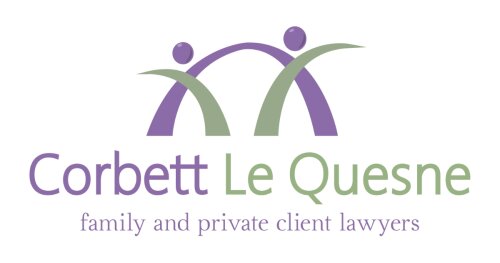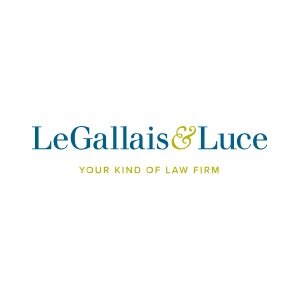Best Collaborative Law Lawyers in Jersey
Share your needs with us, get contacted by law firms.
Free. Takes 2 min.
Free Guide to Hiring a Family Lawyer
Or refine your search by selecting a city:
List of the best lawyers in Jersey
About Collaborative Law in Jersey
Collaborative Law in Jersey is a method of dispute resolution where parties work together with their lawyers to reach a mutually beneficial agreement outside of court. This approach encourages open communication and cooperation to find a resolution that meets the needs of both parties.
Why You May Need a Lawyer
You may need a lawyer in Collaborative Law in Jersey if you are facing a divorce, child custody dispute, or other family law matter where you want to avoid going to court. A lawyer can help guide you through the process, protect your legal rights, and ensure that your interests are represented during negotiations.
Local Laws Overview
In Jersey, Collaborative Law is governed by the Family Law (Jersey) Law 201-, which outlines the requirements and procedures for this form of dispute resolution. It is important to work with a lawyer who is familiar with these laws and can help you navigate the process effectively.
Frequently Asked Questions
1. What is the difference between Collaborative Law and mediation?
Collaborative Law involves each party having their lawyer present during negotiations, while mediation typically involves a neutral third party facilitating discussions. Both methods aim to reach a mutual agreement, but the process and dynamics are different.
2. How long does Collaborative Law in Jersey typically take?
The length of time it takes to reach an agreement through Collaborative Law can vary depending on the complexity of the issues involved and the willingness of both parties to cooperate. On average, it can take several months to a year to finalize an agreement.
3. Can Collaborative Law be used for business disputes in Jersey?
While Collaborative Law is commonly used in family law matters, it can also be utilized for business disputes, contract negotiations, and other civil matters in Jersey. It is a versatile method of resolving conflicts without going to court.
4. Is Collaborative Law in Jersey legally binding?
Yes, any agreement reached through Collaborative Law in Jersey is legally binding once it is signed by all parties involved. It is important to have a lawyer review the agreement to ensure that it complies with local laws and adequately protects your interests.
5. What happens if one party decides to end the Collaborative Law process in Jersey?
If one party decides to withdraw from the Collaborative Law process in Jersey, their lawyer must withdraw as well, and the parties will need to seek alternative methods of dispute resolution, such as mediation or litigation in court.
6. How much does it cost to hire a lawyer for Collaborative Law in Jersey?
The cost of hiring a lawyer for Collaborative Law in Jersey can vary depending on the complexity of the case, the experience of the lawyer, and the amount of time spent on negotiations. It is important to discuss fees and payment options with your lawyer before proceeding.
7. Can children be involved in the Collaborative Law process in Jersey?
Children can be involved in the Collaborative Law process in Jersey, especially in matters of child custody and visitation. Their interests and wishes can be taken into consideration during negotiations, with the help of child specialists or other professionals.
8. Are the details of Collaborative Law proceedings in Jersey confidential?
Yes, the details of Collaborative Law proceedings in Jersey are confidential, and any discussions or information shared during negotiations cannot be used against either party in court. This confidentiality helps promote open and honest communication between the parties.
9. Can I switch from Collaborative Law to litigation in Jersey if negotiations are not successful?
If negotiations in Collaborative Law in Jersey are not successful and one or both parties wish to pursue litigation, they have the right to do so. It is important to discuss this possibility with your lawyer and understand the implications of transitioning to court proceedings.
10. How can I find a lawyer for Collaborative Law in Jersey?
You can find a lawyer for Collaborative Law in Jersey by searching online, asking for recommendations from friends or family, or contacting local law firms that specialize in family law. It is important to choose a lawyer who is experienced in Collaborative Law and can effectively represent your interests.
Additional Resources
If you are seeking legal advice in Collaborative Law in Jersey, you may find the following resources helpful: - Jersey Family Mediation Service - Jersey Legal Information Board - Jersey Law Society
Next Steps
If you are in need of legal assistance in Collaborative Law in Jersey, the next step is to schedule a consultation with a lawyer who specializes in this area. During the consultation, you can discuss your case, ask any questions you may have, and determine the best course of action to resolve your legal matter outside of court.
Lawzana helps you find the best lawyers and law firms in Jersey through a curated and pre-screened list of qualified legal professionals. Our platform offers rankings and detailed profiles of attorneys and law firms, allowing you to compare based on practice areas, including Collaborative Law, experience, and client feedback.
Each profile includes a description of the firm's areas of practice, client reviews, team members and partners, year of establishment, spoken languages, office locations, contact information, social media presence, and any published articles or resources. Most firms on our platform speak English and are experienced in both local and international legal matters.
Get a quote from top-rated law firms in Jersey — quickly, securely, and without unnecessary hassle.
Disclaimer:
The information provided on this page is for general informational purposes only and does not constitute legal advice. While we strive to ensure the accuracy and relevance of the content, legal information may change over time, and interpretations of the law can vary. You should always consult with a qualified legal professional for advice specific to your situation.
We disclaim all liability for actions taken or not taken based on the content of this page. If you believe any information is incorrect or outdated, please contact us, and we will review and update it where appropriate.
Browse collaborative law law firms by city in Jersey
Refine your search by selecting a city.












